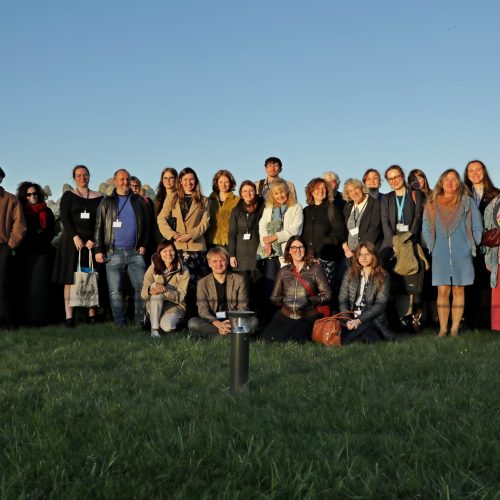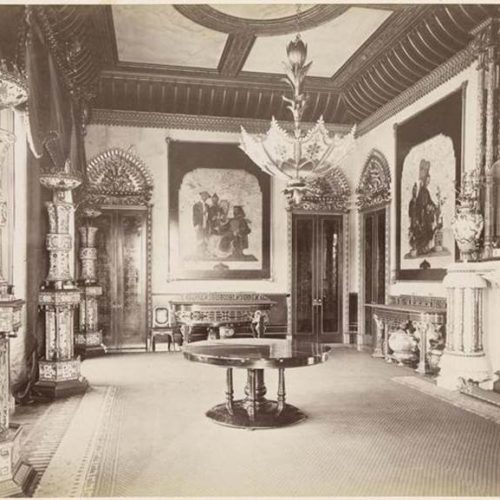text by Agnieszka Sienkiewicz-Charlish
2024 marks the 200th anniversary of the publication of James Hogg’s seminal work, The Private Memoirs and Confessions of a Justified Sinner. James Hogg (1770–1835), often referred to as the “Ettrick Shepherd”, was a Scottish poet, novelist, and essayist who came from a humble rural background. Born into a family of shepherds, Hogg received little formal education, yet he rose to prominence in the early 19th century as one of Scotland’s most unique literary voices. His best-known work, The Private Memoirs and Confessions of a Justified Sinner (1824), remains a cornerstone of Gothic literature and has garnered growing appreciation for its psychological depth, complex narrative structure, and exploration of religious extremism.

The novel tells the story of the Calvinist Robert Wringhim, a young man who believes that he is one of the “elect” — predestined for salvation no matter what he does. The novel is split into two distinct parts: a third-person “Editor’s Narrative” and Robert’s first-person “Confessions”. This dual structure underlines the unreliability of both narrators. In the Editor’s Narrative, the story begins with the murder of George Colwan, Robert’s half-brother, under mysterious circumstances. The editor presents the life of George and Robert from an external perspective, focusing on the family’s fractured dynamics and Robert’s increasing obsession with his own righteousness. In the second part, Robert recounts his version of events, portraying himself as a devout, “justified sinner”, persecuted by a sinful world. His encounters with Gil-Martin, a mysterious figure who seems to represent either Satan or is a manifestation of Robert’s inner turmoil, lead him down a path of moral corruption, murder, and madness.
When it was first published in 1824, The Private Memoirs and Confessions of a Justified Sinner was given a hostile reception and it remained largely neglected throughout the 19th century. However, in the 20th century, the novel was rediscovered by scholars and readers who recognized its modernist qualities, such as its fragmented narrative and psychological complexity.
Today, Private Memoirs and Confessions of a Justified Sinner is celebrated as one of the most innovative and disturbing works of Scottish literature. It has influenced a wide range of authors, from Robert Louis Stevenson to Ian Rankin. Its exploration of religious obsession, the nature of evil, and the unreliability of human perception resonate with contemporary readers, making it a timeless and haunting study of the darker aspects of faith and identity.
In August 2024, Dr. Sam Hirst from Romancing the Gothic organised a two-day conference which celebrated 200 years of James Hogg’s masterpiece with a series of talks, events, and workshops. There was only one panel devoted to Hogg, but it featured the following fascinating talks:
- Nick Smith – “I have since been induced to look to you as my guardian angel’: Hogg’s Highland Journeys and their influence on the Justified Sinner”
- Mizuki Tsutsui – “An Analysis of Ian Rankin and James Mavor’s Draft of the Film Script of James Hogg’s Justified Sinner: Demon, Union and Adaptation”
- Martina Jauch – “Masculinities, Mania, and Modes of Religion – ETA Hoffman’s and Goethe’s Impact on James Hogg’s The Private Memoirs and Confessions of a Justified Sinner”
- Laila Sougri – “The Parallax of Evil: Phenomenological Encounters with the Uncanny in the Works of James Hogg, Daphne du Maurier, and Mark Z. Danielewski”
You can watch all the talks on Romancing the Gothic YouTube channel.
Other panels looked at Demonic Politics, Women and the Demonic, Duality, Modern Demonic Imagination, Vampires, Imagining Hell, and Modern Scottish Gothic. Thus, the conference highlighted not only Hogg’s contribution to the Gothic mode, but also the novel’s topicality.


